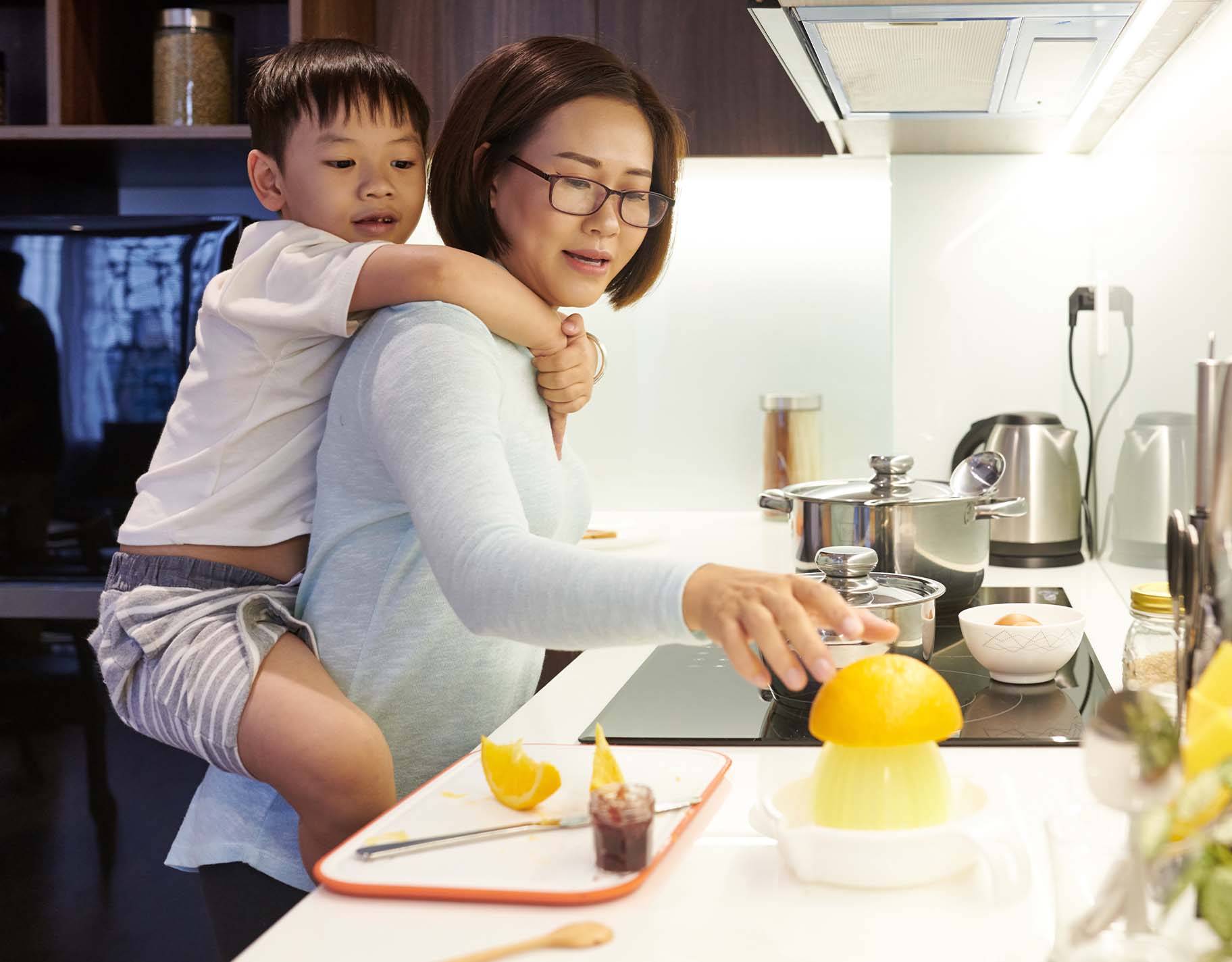Distracted Parenting: What It Is and Is Not
A lot of parents are scratching their heads about Distracted Parenting. Here is what it is and what it is not –
As more parenting styles and terms start cropping up on social media, it can be overwhelming. Distracted Parenting is one of the new styles that recently popped up during the digital age wherein parents aren’t actively engaging with their kids. But how can parents be constantly present when there are just so many things to juggle? Is being occupied with housework a form of distracted parenting? Here’s what we know!

Distracted Parenting: Where did this term come from?
The term, Distracted Parenting, is actually an offshoot from another style, Uninvolved Parenting or Neglectful Parenting.
Neglectful Parenting, originally discovered by psychologist Diana Baumrind in the 1960s, is when a parent only does the bare minimum for their kids. Beyond providing their necessities such as food, shelter, clothing, and education, they rarely interact with their kids and show little to no emotional involvement with their kids. Eventually, psychologists Maccoby and Martin evolved the term into Uninvolved Parenting in 1983, describing it as a style that is “both low in responsiveness and demandingness.” (Power, 2013; Kausar and Afaq, 2024)
While Neglectful Parenting appears similar to Permissive Parenting, there’s a stark difference in terms of warmth. The latter is highly emotionally responsive, validating their needs but fails to hold boundaries. The former holds nothing at all, not even emotional attachment (Ghogare and Telgote, 2023).
Distracted Parenting, however, differs from the two aforementioned styles as it now has a new element: gadgets.
What causes Distracted Parenting?
We may be emotionally invested and loving to kids but, it’s easy to end up getting distracted from our parenting when gadgets are involved. With all the little bite-sized content in the form of reels and stories, we end up scrolling through all sorts of content – unaware of how much time has passed. The adrenaline of learning something new keeps us glued, unable to put down the phone as we learn something new again.
Thus, our interactions with our kids lose their quality. When they try to speak to us, we only grace them with a hum, nod, or even a disinterested “Oh I see.”
While our kids can learn the same way, it does affect the development of one of their most important tools: communication. Sure, they learn the words and terms but how to use it is another story altogether. Since most social media content doesn’t encourage interaction (unless the content creator is streaming), there are little to no opportunities to practice speaking or writing.

What is Distracted Parenting?
Knowing now that gadgets are one of the main culprits of distracted parenting, we can easily define Distracted Parenting as a style that, despite the emotional investment, is when the parent is uninvolved due to an external factor.
Now, the anxiety-inducing question: what if the parent is doing housework or work? Is that Distracted Parenting?
Working parents, we know that work and household chores can feel distracting. But working and doing housework isn’t included on the list of “distractions.” If anything, these are a part of parenting – working earns the means to afford all our family’s luxuries and necessities and housework is part of the upkeep. There will be days, however, that these chores will consume more hours than we want them to which leaves us with guilt.
However, studies in Europe have discovered that involving the kids in these “boring chores” (e.g. bringing them to the supermarket, getting the car fixed, delivering things) encourages their development (Loderup, Timmons, Kimball, Hill, Marks, and LeBaron, 2021; Schaber, Simm, Patella, Garthus-Niegel, 2024). They’ll see people speaking, writing, and eventually learn the contexts and associations – the one thing that social media content doesn’t usually provide unless they read the thread filled with comments.
Filipinos and Distracted Parenting: How it’s more obvious
As one of the countries with the most gadget users, Filipino parents may find themselves reaping the results of their gadget use and distracted parenting. Schools may suddenly report to them that their kids have meltdowns, unable to spell or write their name on their papers. Kids may be having more tantrums or meltdowns because 1) they don’t have the words to express what they’re feeling, 2) if they do have the words, they have to explain it to us which also frustrates them, and 3) they kind of figured: negative attention is better than the usual dismissive responses.
While we get that the phone is how we do our work, we have the choice to put it down. Or if our kids insist on screentime, we can watch with them. The cartoon may be boring but, at least we’ll know what they’re talking about.
References
Ghogare, A. S., & Telgote, S. A. (2023). Relationship between the Parenting Styles and Behavioral Patterns among Children. Global Journal of Medical, Pharmaceutical, and Biomedical Update, 18.
Kausar, R., & Afaq, U. (2024). The Effects of Parenting Styles on Child Development. Jahan-e-Tahqeeq, 7(2), 856-866.
Loderup, C. L., Timmons, J. E., Kimball, E. R., Hill, E. J., Marks, L. D., & LeBaron, A. B. (2021). How do parents teach their children about work? A qualitative exploration of household chores, employment, and entrepreneurial experiences. Journal of Family and Economic Issues, 42, 73-89.
Pal, M. P., & Verma, V. L. (2024). Parenting Styles And Their Effects On Child Mental Health. Journal for ReAttach Therapy and Developmental Diversities, 7(6), 159-160.
Power, T. G. (2013). Parenting dimensions and styles: a brief history and recommendations for future research. Childhood Obesity, 9(s1), S-14.
Schaber, R., Simm, J., Patella, T., & Garthus-Niegel, S. (2024). Practicable strategies parents can apply in their daily routine to successfully implement the 50/50-split-model of paid work, childcare, and housework: a qualitative content analysis. BMC Public Health, 24(1), 2215.
More about parenting styles?
Bianca Roque Brandner: Embracing Our Unique Parenting Styles
Gentle Parenting: 3 Moms Share Why They Prefer This Parenting Style









